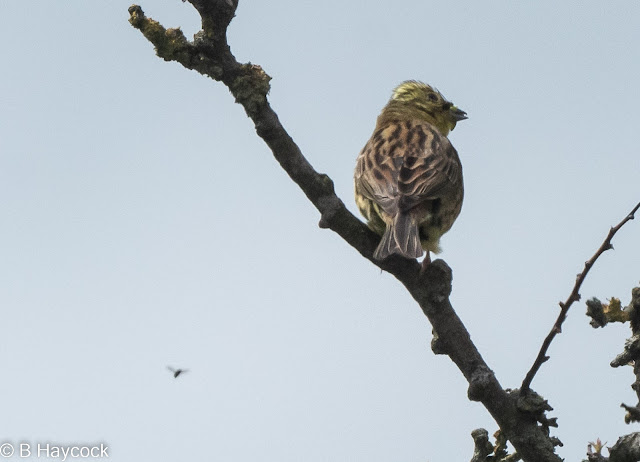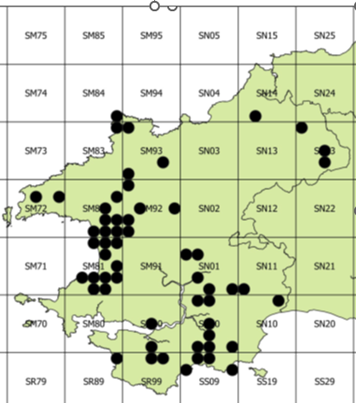Yellowhammers in Pembrokeshire
and elsewhere in Wales are in serious trouble. Over the last few decades their
population has declined to an all-time low as indicated, for example, by county
records and by the Breeding Bird Survey abundance trend in Wales.
A survey undertaken by several
observers this winter in Pembrokeshire has shown that, for their winter
survival, yellowhammers are now more or less totally dependent on artificial
feeders. In the wider countryside, in places where they were previously
recorded during the 2007-12 winter bird atlas survey period, for example, none
were found at all which is quite a shocking situation!
 |
| Records of breeding yellowhammers, such as this female with food in south Pembs in 2022, are getting less and less each year! |
In order to try and help
yellowhammers, more information is urgently needed about the current
distribution and abundance of the remaining breeding population.
So, between April and August
this year, there is to be a yellowhammer breeding population survey in
Pembrokeshire. The initial priority is to target 50-60 tetrads (2km x
2km) squares where yellowhammers were recorded in the breeding seasons during
the last 10 years (see map below).
NB. whilst the map indicates where have been concentrations
of yellowhammers, many of the records are of just one or two birds and some
tetrads have had no records since 2013.
 |
|
Yellowhammer tetrad breeding season records 2013-2022 |
Anyone can make a valuable
contribution to the survey by posting sightings here on the Pembs sightings
blog, indicating where, when and how many yellowhammers were seen or heard –
the number of singing males is particularly useful information. Records can
also be submitted via BirdTrack or the West Wales Biodiversity Information Centre
(On-line Wildlife Recording system or app).
All records of yellowhammer sightings will be gratefully received.
Bob Haycock, Clive Hurford and Clare Flynn
